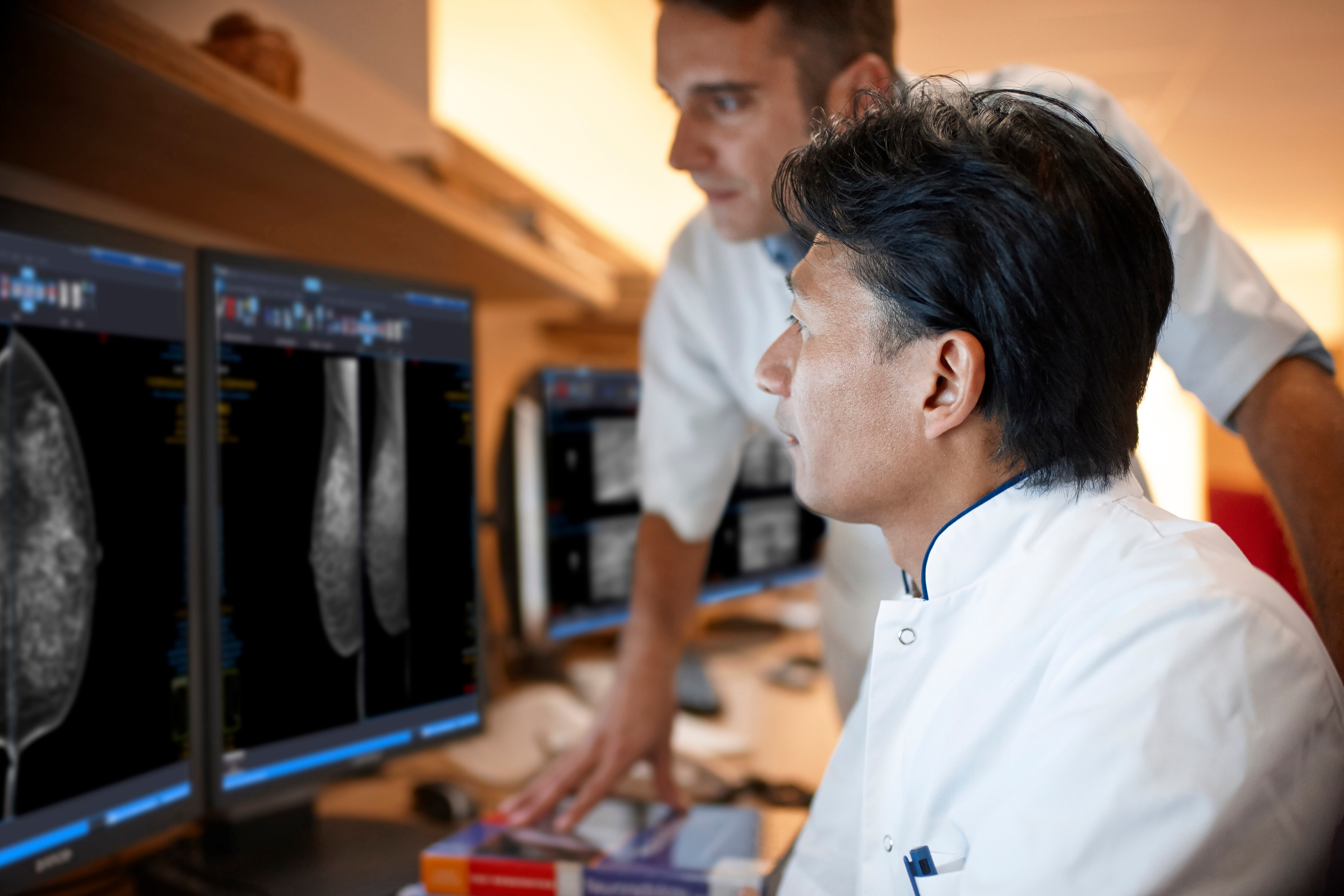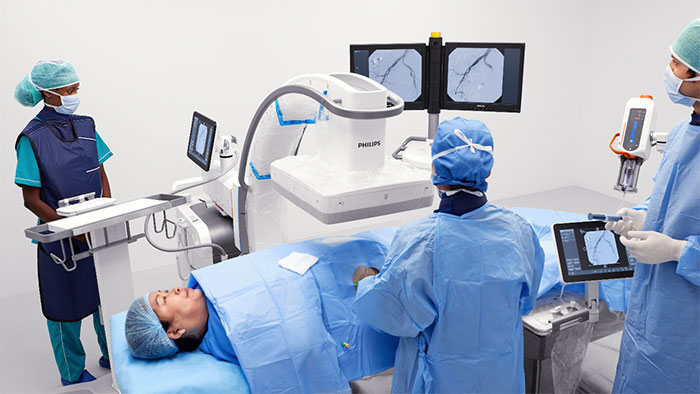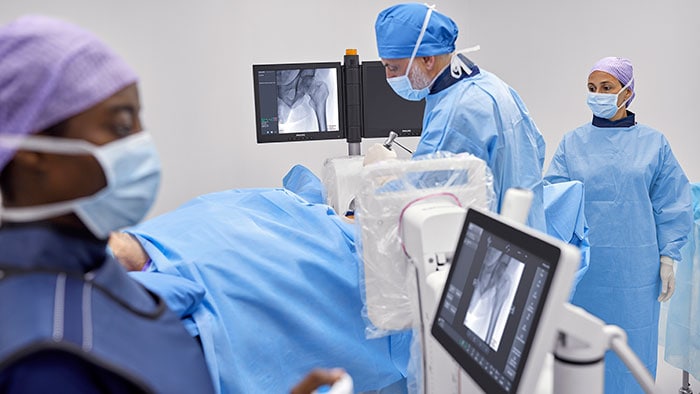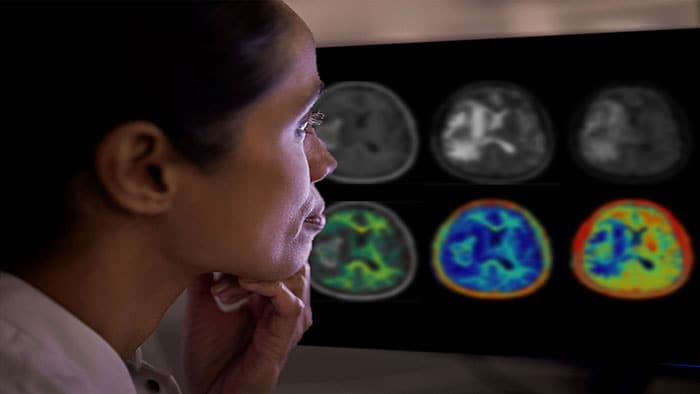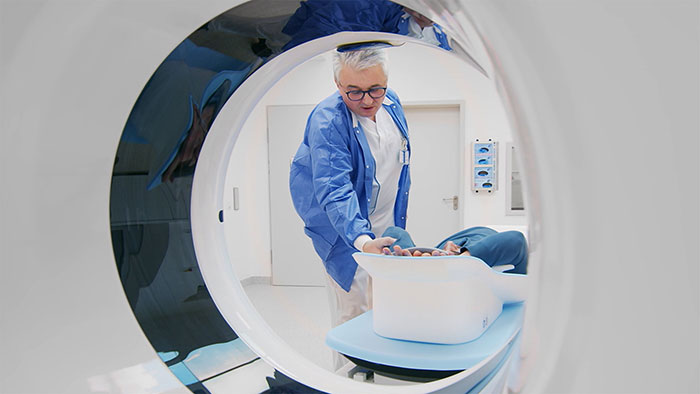Mar 16, 2022
Philips PACS interoperability helps Scotland’s National Health Service deliver leading breast cancer screening
Amsterdam, the Netherlands and Orlando, Florida, USA – Royal Philips (NYSE: PHG, AEX: PHIA), a global leader in health technology, and NHS National Services Scotland, a non-departmental public body that provides advice and services to National Health Service (NHS) Scotland, today revealed the impact of the COVID-19 pandemic on the Scottish Breast Screening Program (SBSP), and the measures taken to deal with the backlog of delayed appointments. Philips’ vendor-neutral Vue PACS (Picture Archiving and Communication System) allows the SBSP’s six breast screening centers and its mobile screening units to interoperate with Scotland’s national PACS system, increasing access to breast screening for Scotland’s rural communities, enhancing patient choice, and streamlining diagnostic and treatment workflows. Female breast cancer is the world’s most common form of cancer, with approximately 2.26 million new cases in 2020 [1]. Nearly 1,000 women per year die from the disease in Scotland alone [2]. Through the partnership between Philips and NHS National Services Scotland, as many as 270,000 women in Scotland between the ages of 50 and 70 are invited for breast screening (mammography) every year [3]. However, according to Public Health Scotland (PHS), between April 2020 and December 2020 during the height of the COVID-19 pandemic, there was a 19% fall in the number of women diagnosed with early-stage breast cancer (down 35% at stage 1 and 15% at stage 2 diagnosis) [4]. This drop was largely attributed to the SBSP being paused between March 30 and August 3, 2020, creating a backlog of appointments, diagnoses, and treatments.
Philips Picture Archiving and Communication System - Vue PACS - is a scalable and modular image management solution that provides hospitals and related institutions with scalable (local and wide area) PACS functionalities. The interoperability of Philips’ Vue PACS has been a key factor in reducing that backlog, offering enhanced connectivity between the screening program’s regional screening centers, as well as interoperability with Scotland’s Global PACS system.
“The national reporting function enabled by the Global PACS solution allows centers to report and support each other. For instance, in the case of a staffing issue due to absences from sickness amongst readers, cases for reporting can rapidly pile up. The use of this function allows readers from across Scotland to provide mutual aid and assistance in ensuring all centers are at a similar level in reporting,” said Dr. Gerald Lip, Clinical Director of NE Scotland Breast Screening Service.
Streamlining workflows, improving access to better care
The interoperability of Philips Vue PACS with Scotland’s Global PACS system makes an individual patient’s current and prior mammography images available to all NHS Scotland hospitals, enabling clinicians to compare new scans with prior studies irrespective of where they were performed in Scotland. It also allows the program’s regional screening centers to support one another - for example, when staff shortages limit the ability of any one center to cope with the volume of images that need to be read. As a result, patients benefit from faster diagnoses and better-informed treatment plans.
This latest collaboration with the NHS in Scotland further demonstrates our commitment to deliver patient-centric solutions designed to deliver the right information at the right time to help improve the patient experience and help advance the path to precision care.
Kees Wesdorp
Chief Business Leader of Precision Diagnosis at Philips
“This latest collaboration with the NHS in Scotland further demonstrates our commitment to deliver patient-centric solutions designed to deliver the right information at the right time to help improve the patient experience and help advance the path to precision care,” said Kees Wesdorp, Chief Business Leader of Precision Diagnosis at Philips. “The Scottish Breast Screening Program has revolutionized breast cancer care in Scotland, ensuring that no matter where patients live, they have a better chance of receiving an early diagnosis and timely treatment. Philips is proud to be working with the team at NHS Scotland to continually improve the technology, scope and scale of the program.”
Philips’ diagnostic informatics portfolio supports hospitals and imaging centers with intelligent, scalable, secure and interoperable solutions which connect people, technology and data to support clinical decisions at every point of care. Philips’ end-to-end portfolio of enterprise informatics solutions enables patients, clinicians and hospital administrators to fully harness the power of information and translate data into actionable insights – a critical next step to advance precision care.
Philips will be showcasing its enterprise imaging solutions that securely connect and facilitate the sharing of information among patients and their care teams across health systems at the upcoming HIMSS Global meeting, March 14 – March 18 in Orlando, Florida, USA. For more information on how the company’s advanced analytics and intelligent informatics support clinicians at the point-of-care by providing clinical insights and improving collaboration among clinical care teams, visit www.philips.com/himss and follow @PhilipsLiveFrom for #HIMSS22 updates throughout the event.
[1] Ferlay J, Colombet M, Soerjomataram I, Parkin DM, Piñeros M, Znaor A, Bray F. Cancer statistics for the year 2020: An overview. Int J Cancer. 2021 Apr 5. doi: 10.1002/ijc.33588. Epub ahead of print. PMID: 33818764. https://pubmed.ncbi.nlm.nih.gov/33818764/
[2] https://www.nhsinform.scot/healthy-living/screening/breast/breast-screening
[3] https://www.isdscotland.org/Health-topics/Cancer/Breast-screening/
[4] https://publichealthscotland.scot/publications/cancer-staging-data-using-2018-to-2020-dce-data-the-impact-of-covid-19/cancer-staging-data-using-2018-to-2020-dce-data-the-impact-of-covid-19/
About Royal Philips
Royal Philips (NYSE: PHG, AEX: PHIA) is a leading health technology company focused on improving people's health and well-being, and enabling better outcomes across the health continuum – from healthy living and prevention, to diagnosis, treatment and home care. Philips leverages advanced technology and deep clinical and consumer insights to deliver integrated solutions. Headquartered in the Netherlands, the company is a leader in diagnostic imaging, image-guided therapy, patient monitoring and health informatics, as well as in consumer health and home care. Philips generated 2021 sales of EUR 17.2 billion and employs approximately 78,000 employees with sales and services in more than 100 countries. News about Philips can be found at www.philips.com/newscenter.


